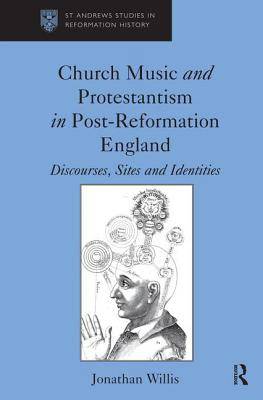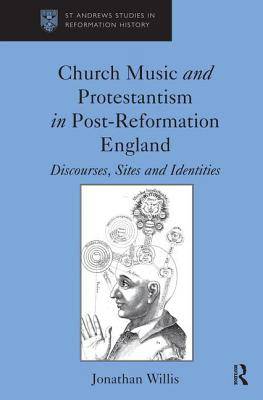
- Afhalen na 1 uur in een winkel met voorraad
- Gratis thuislevering in België vanaf € 30
- Ruim aanbod met 7 miljoen producten
- Afhalen na 1 uur in een winkel met voorraad
- Gratis thuislevering in België vanaf € 30
- Ruim aanbod met 7 miljoen producten
Zoeken
Church Music and Protestantism in Post-Reformation England
Discourses, Sites and Identities
Jonathan Willis
€ 290,45
+ 580 punten
Omschrijving
'Church Music and Protestantism in Post-Reformation England' breaks new ground in the religious history of Elizabethan England, through a closely focused study of the relationship between the practice of religious music and the complex process of Protestant identity formation. Hearing was of vital importance in the early modern period, and music was one of the most prominent, powerful and emotive elements of religious worship. But in large part, traditional historical narratives of the English Reformation have been distinctly tone deaf. Recent scholarship has begun to take increasing notice of some elements of Reformed musical practice, such as the congregational singing of psalms in meter. This book marks a significant advance in that area, combining an understanding of theory as expressed in contemporary religious and musical discourse, with a detailed study of the practice of church music in key sites of religious worship. Divided into three sections - 'Discourses', 'Sites', and 'Identities' - the book begins with an exploration of the classical and religious discourses which underpinned sixteenth-century understandings of music, and its use in religious worship. It then moves on to an investigation of the actual practice of church music in parish and cathedral churches, before shifting its attention to the people of Elizabethan England, and the ways in which music both served and shaped the difficult process of Protestantisation. Through an exploration of these issues, and by reintegrating music back into the Elizabethan church, we gain an expanded and enriched understanding of the complex evolution of religious identities, and of what it actually meant to be Protestant in post-Reformation England.
Specificaties
Betrokkenen
- Auteur(s):
- Uitgeverij:
Inhoud
- Aantal bladzijden:
- 314
- Taal:
- Engels
- Reeks:
Eigenschappen
- Productcode (EAN):
- 9781409400714
- Verschijningsdatum:
- 28/04/2010
- Uitvoering:
- Hardcover
- Formaat:
- Genaaid
- Afmetingen:
- 156 mm x 234 mm
- Gewicht:
- 616 g

Alleen bij Standaard Boekhandel
+ 580 punten op je klantenkaart van Standaard Boekhandel
Beoordelingen
We publiceren alleen reviews die voldoen aan de voorwaarden voor reviews. Bekijk onze voorwaarden voor reviews.











